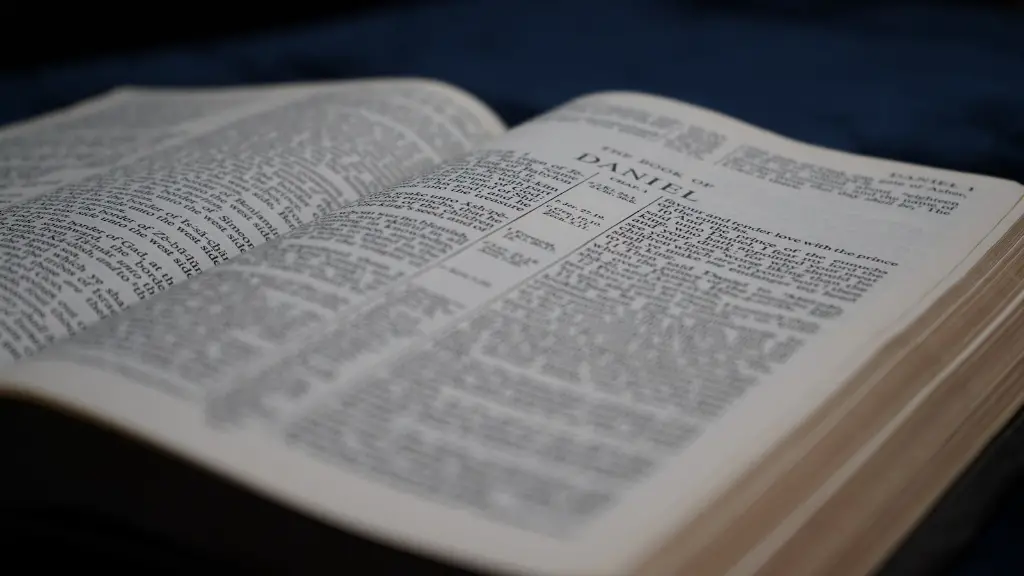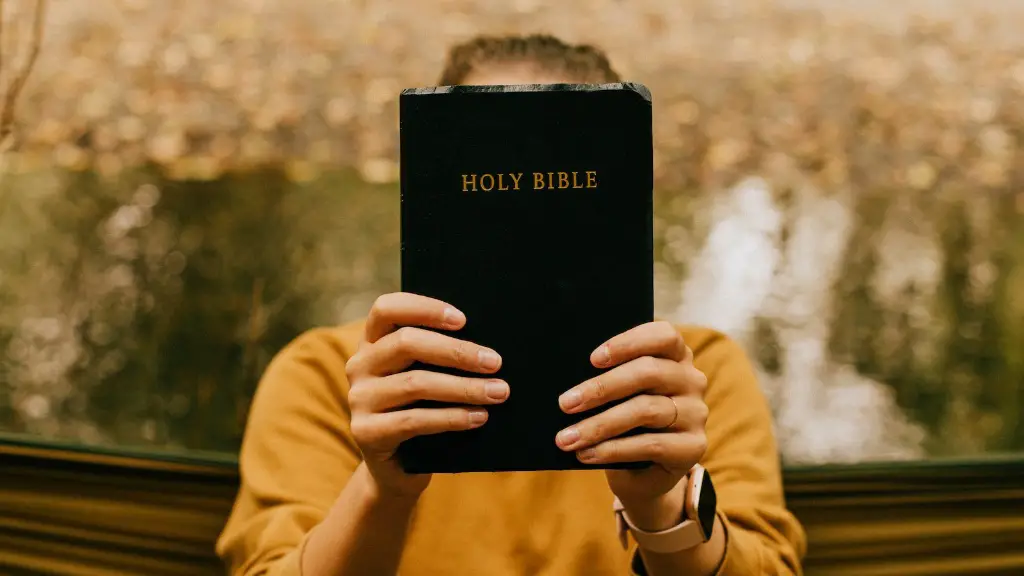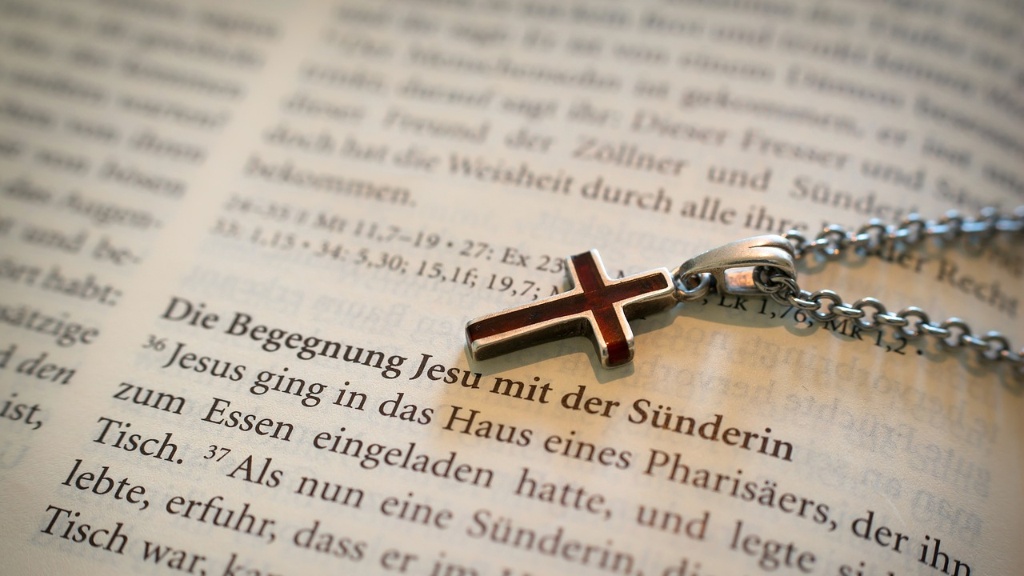The Bible is often the topic of debate when it comes to body modifications, particularly those involving piercings. Those who follow the teachings of the Bible are bound to be wondering what it might say on the matter. To know what the Bible says about piercings, it helps to understand the background and context of the references in its pages.
In the Bible’s Old Testament, there are two mentioning made of piercings. The first mention is in Leviticus 19:28, which states, “You shall not make any cuts on your body for the dead or tattoo yourselves: I am the Lord.” This passage is part of the Holiness Code that was given to the Israelites to keep them holy and distinct from other nations. From this passage, it is clear that the Lord viewed tattoos and piercings as something ungodly – perhaps due to their association with pagan ritualism.
The second mention is in Deuteronomy 14:1, wherein God commands His people not to get tattoos or cut their flesh for the dead. Again, the association with pagan ritualism is clear. This passage, and the Holiness Code in general, is still respected by many evangelical Christians today, who take it to mean that getting any tattoos or piercings is off limits.
However, not all Christians adhere strictly to this interpretation. Many view the commandment against tattoos as merely an injunction against following pagan traditions and customs. They argue that modern tattoos and piercings are not connected to any pagan rituals and should therefore be permissible so long as they are not used to glorify evil. This includes piercings like industrial piercings, lip rings, and any other visible body piercings as long as they are done in moderation.
This point of view has been echoed by Protestant and evangelical theologians, who have argued that the Bible’s prohibition against tattoos and piercings was to do with the culture of the time rather than an inherent moral judgement. As such, they argue that tattoos and piercings can be viewed as a matter of personal preference, as long as they are done with moderation, respect, and reverence.
Ultimately, the answer to whether tattoos and piercings are permissible according to the Bible is a matter of personal interpretation. While some evangelicals may regard them as forbidden, others may view them as permissible, as long as they are tasteful and done out of respect for God. Ultimately, it is up to the individual to decide how they wish to interpret the Bible’s teachings on the matter.
What is the signifiacance of a piercing?
Piercings can carry a variety of significances for each individual who undergoes them. For some, piercings are a way to express their own unique, individual identity, as well as making a statement to the world at large. For others, piercings may be a way to signify different stages or events in their life, for example a new relationship, or starting a new job. Some also find spiritual significance in piercings, especially if it resembles or resembles a symbol of their faith.
In some cultures and societies, such as those found in the Americas, piercings can act as a form of tribal identity, offering protection and blessings from certain spiritual ancestors. It is believed that through a symbol such as a piercing, an individual can connect more deeply with the spirits of their ancestors and access the protection they offer.
No matter the purpose of a piercing, they are always a unique form of self-expression and individual identity. As such, piercings should be given due respect and reverence, even if one is not religiously inclined.
What about practical risks?
While there are potentially spiritual risks that come with piercings, it is important to consider the practical risks too. As with any medical procedure, there is always the risk of infection, so it is important to ensure that the piercing is done professionally and that the environment is kept clean and sterile.
The great news is, with the advancement of piercing techniques and hygiene standards, the risks involved with piercing have reduced substantially. It is still important to remain vigilant and mindful of the potential risks, especially when sporting piercings on the more sensitive areas of the body such as the tongue, nipples and genitalia.
It is also important to bear in mind that certain piercings may come with legal implications in certain countries. For example, facial piercings such as those on the nose or lip can be seen as indecent exposure and be subject to legal action. As such, always be sure to check out the local laws and regulations before getting a piercing.
What should I look out for when choosing a piercer?
When selecting a piercer, it is important to ensure that they have a good reputation and a good portfolio of previous work. It is also important to ensure that they are fully qualified and have the relevant training and experience to do the job properly. It is always better to opt for a professional piercer who knows how to do a good job, than a cheaper but less experienced one who may do a poor job.
In addition to their experience, it is also important to ask questions about the hygiene of their premises, and the type of piercing jewelry and needles that they use. Look for a studio that is clean and hygienic, and that follows the latest regulations on sanitization and sterilization. If a piercer is overly eager to cut corners in the hygiene aspect, it may be best to look elsewhere rather than risk more serious consequences.
What types of piercing aftercare should be followed?
It is also important to follow the right aftercare protocols after getting a piercing. This includes cleaning the piercing regularly with antibacterial soap, abstaining from alcohol and smoking, and not touching or playing with the jewelry until the area is completely healed. It is also important to monitor the piercing for signs of redness, swelling, or excessive bleeding.
Finally, it is important to ensure that the piercing is healed properly and is not tampered with during this time. If any signs of infection or irritation does occur, it is important to seek prompt medical help. Following the right steps during and after the piercing is the best way to ensure the best outcome.
Conclusion
From the Bible, it can be inferred that while piercings are not mentioned directly, they are associated with pagan rituals and are therefore discouraged from a religious perspective. However, this does not necessarily mean that piercings are forbidden – it is ultimately a matter of personal interpretation. When getting a piercing done, it is important to ensure that it is done by a qualified piercer in a hygienic environment, and taking the right aftercare steps should it occur.




